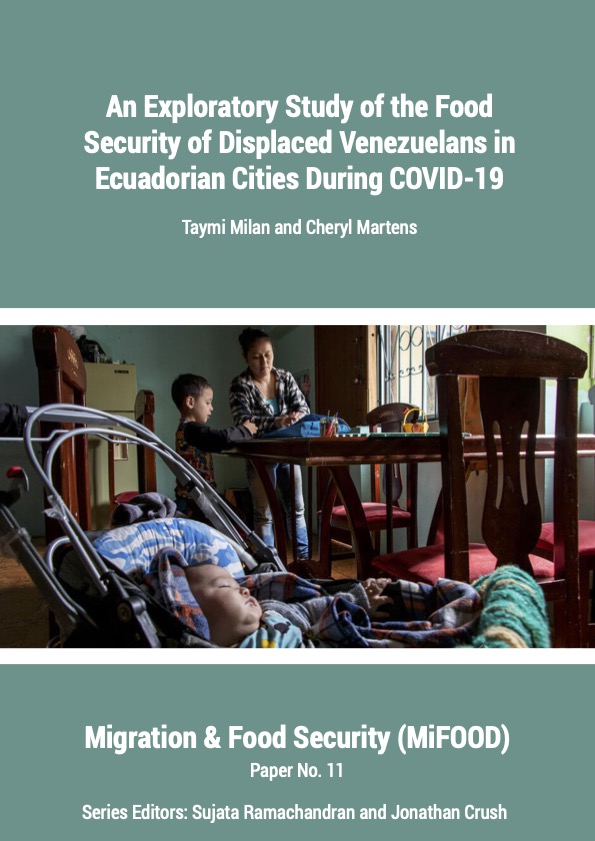The displacement of over 7 million Venezuelans is reconfiguring urban contexts in Latin America. Ecuador is the third largest receiving country for Venezuelan migrants. The absence of state migration policies combined with the worsening economic situation across the region has had a significant impact on migrant food security. Although food security and migration have been studied extensively in Latin America, their intersectional relationships remain under-researched. This paper draws on a systematic review and focus group research to analyze the food security conditions of displaced Venezuelans in urban con- texts in Ecuador and the impacts of the COVID-19 pandemic on the levels of migrant food insecurity, from an intersectional approach. Our results show that in the cities of Quito and Huaquillas, food demands during the lockdown periods were met through direct food supply and coping strategies, while in the large and border cities in Ecuador, the effects of economic shortages and lack of systematic food access were more marked. Our study also found that food (in)security disproportionately impacted women migrants in all cities during the COVID-19 pandemic, who were compelled to share their food rations to meet the needs of children, grandchildren, and other dependants in their households.

